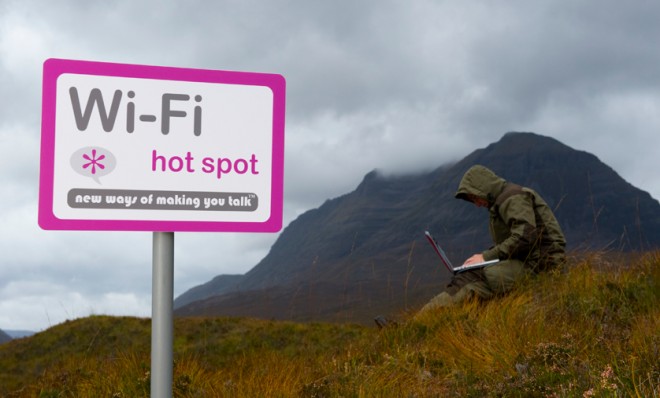Facebook's new project: Give internet access to everyone on Earth
Mark Zuckerberg and Co. are leading a global coalition to make connectivity a basic human right

A free daily email with the biggest news stories of the day – and the best features from TheWeek.com
You are now subscribed
Your newsletter sign-up was successful

Is internet access a fundamental human right? Facebook and a coalition of six major telecom companies believe it is.
On Tuesday night, they revealed Internet.org — a global partnership that wants to put the web's vast trove of knowledge at the fingertips of every man, woman, and child around the world.
Today, just over one-third of Earth's population has access to the internet, which means 4 billion to 5 billion others are unplugged. Facebook thinks we can do better.
The Week
Escape your echo chamber. Get the facts behind the news, plus analysis from multiple perspectives.

Sign up for The Week's Free Newsletters
From our morning news briefing to a weekly Good News Newsletter, get the best of The Week delivered directly to your inbox.
From our morning news briefing to a weekly Good News Newsletter, get the best of The Week delivered directly to your inbox.
Joined by major communications providers like Samsung, Nokia, Qualcomm, and Ericsson, the global initiative will focus on three key challenges in developing countries:
1. Make access affordable. The organization believes this can be accomplished by developing lower-cost, higher-quality smartphones.
2. Use data more efficiently. The goal here is to develop better apps and compression tools to handle data more effectively. Facebook, for example, wants to lower its Android app's data rate from the current 12 megabytes a day down to just one.
3. Have businesses drive local access. Facebook says this "includes testing new models that align incentives for mobile operators, device manufacturers, developers and other businesses to provide more affordable access than has previously been possible."
A free daily email with the biggest news stories of the day – and the best features from TheWeek.com
"Everything Facebook has done has been about giving all people around the world the power to connect," Facebook CEO Mark Zuckerberg says in a statement. "There are huge barriers in developing countries to connecting and joining the knowledge economy. Internet.org brings together a global partnership that will work to overcome these challenges, including making internet access available to those who cannot currently afford it."
The effort is just the latest example of a major technology firm seeking to shuttle potential growth opportunities under a humanitarian banner. It's "a reflection of how tech companies are trying to meet Wall Street's demands for growth by attracting customers beyond saturated markets in the United States and Europe," says Vindu Goel at the New York Times, "even if they have to help build services and some of the infrastructure in poorer, less digitally sophisticated parts of the world." (Facebook growth has largely stalled in existing markets at just over 1.1 billion users.)
The companies involved clearly have a financial stake in this new initiative. Still, bringing internet access to unconnected corners of the globe is clearly a "laudable goal," says Selena Larson at ReadWrite, particularly with the potential for "boosting education and local economies."
In 2011, the United Nations' Human Rights Council unanimously endorsed internet access as a basic human right. "The internet is such an important thing for driving humanity forward," Zuckerberg tells the Times. "But it's not going to build itself."
-
 The Olympic timekeepers keeping the Games on track
The Olympic timekeepers keeping the Games on trackUnder the Radar Swiss watchmaking giant Omega has been at the finish line of every Olympic Games for nearly 100 years
-
 Will increasing tensions with Iran boil over into war?
Will increasing tensions with Iran boil over into war?Today’s Big Question President Donald Trump has recently been threatening the country
-
 Corruption: The spy sheikh and the president
Corruption: The spy sheikh and the presidentFeature Trump is at the center of another scandal